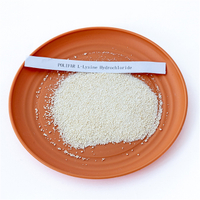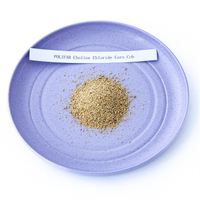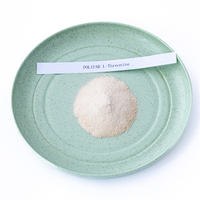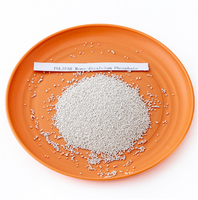Views: 0 Author: Site Editor Publish Time: 2021-01-22 Origin: Site








When some farmers use feed additives, they always think that the more the amount, the better the effect. However, practice has proved that when most of the feed additives are used too much, they will not only be harmful to the livestock and poultry, but also will make the livestock and poultry sick and inhibit growth; the severe ones will cause death and cause significant economic losses. As one of the important ones, how to add feed grade L lysine hydrochloride to the feed?
What are problems with current application of L lysine hydrochloride?
How to select and apply L lysine hydrochloride for your farm?
How to store L lysine hydrochloride correctly?
L lysine hydrochloride has a significant effect in improving the nutrition of feed and improving the utilization rate of feed. In addition, L lysine hydrochloride can also promote animal growth and prevent diseases caused by the lack of certain trace elements.
Feed will lose nutrients during storage, and the addition of L lysine hydrochloride can make up for the missing nutrients. Therefore, L lysine hydrochloride is an important part of protein feed.
However, in recent years, food safety issues caused by the abuse of feed additives have attracted more and more public attention.
L lysine hydrochloride is metabolized in the body after being eaten by livestock, but on the condition that which is over-administered, the parts that cannot be metabolized by the livestock will accumulate in their bodies and eventually be put on our dinner table.
According to common sense, feed additives should at least meet the three basic requirements of being safe, effective and not polluting the environment.
However, many feed additives fail to meet this basic condition. Their abuse use has caused a series of food safety incidents, and also caused environmental pollution and blocked exports of livestock products.
There are different types of feed additives in the market. Even the same type of lysine additives, feed grade L lysine hydrochloride produced by different manufacturers has subtle differences.
The large number producers and the uneven product quality make it difficult for feed mills and farmers to make accurate judgments. If you are one of them, the following three steps may help you.
Know the purpose
Farmers need to know what their animals need, nutritious feed or non-nutritive ones. L lysine hydrochloride is a nutrient additive, which is suitable for livestock that cannot synthesize by itself, or can synthesize L lysine hydrochloride by itself, but the quantity is insufficient.
Compare varieties
At present, there are many manufacturers and types. You need to choose a reliable manufacturer and buy it from a reputable company. There are comparatively choosing to use L lysine hydrochloride, not only for economic benefits, but also for effectiveness.
Apply reasonably
Some feed additives need to be added to the water to feed the livestock, but more need to be added to the dry feed. For this part of feed additives, mixing in moist feed or water will greatly reduce the use effect, so you cannot easily change the use.
If the quality at the time of purchase is determined by the manufacturer, after it reaches the farmers, the efficiency of L lysine hydrochloride will largely depend on the way the farmers preserve it.
Proper preservation or storage affects whether it can maintain its original L lysine hydrochloride composition, and ultimately affects its use effect on livestock. As with the storage conditions of most feed additives, farmers need to keep L lysine hydrochloride storage environment ventilated and dry to avoid rain.
In rainy days, the humidity in the air increases, which will reduce the potency of certain trace components.
For feed grade L lysine hydrochloride, its properties are more stable when stored at low temperature, but its loss increases at high temperature. So, avoid direct sunlight, especially in summer, otherwise L lysine hydrochloride will decompose, and of course it will lose its original effect.
During the production and sales stage, the responsibility for ensuring the quality falls on the supplier, but whether feed grade L lysine hydrochloride can be well absorbed by livestock depends largely on the use and preservation measures of farmers. However, if you choose feed additives of Polifar Group. as your partner, don't worry about these, because we will give you the most complete application plan. We serve you wholeheartedly, just to gain your trust.






